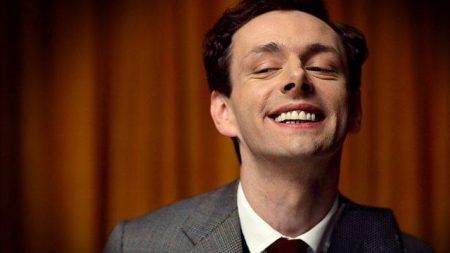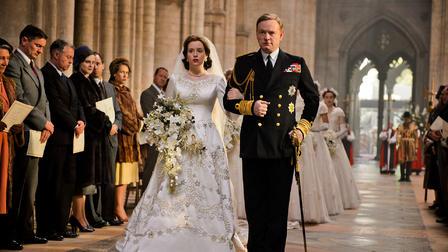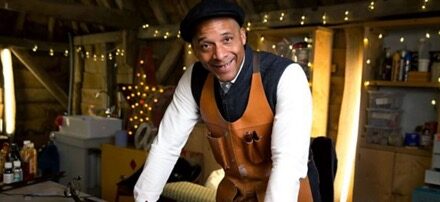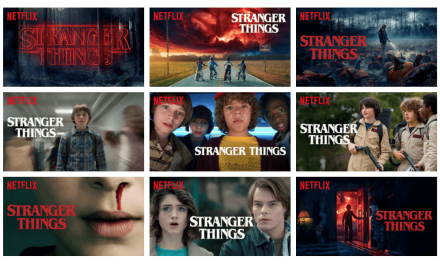The term “biopic” is rarely used about television programmes, but biographical drama occurs across many kinds of TV output, such as dramatized documentary, one-off TV movies and historical drama. Biopics are fictionalized narratives of (most of) the life of an individual, told primarily in chronological order, about a significant person who made a contribution to present culture or who lived recently enough to be familiar to the audience. But finding a television genre of the biopic takes some effort. For example, when I put the term “biopic” into the wonderful BBC Genome database covering BBC TV listings from 1936 to 2009, there were 128 results of my search. Not very many. Moreover, all except three entries referred to cinema films shown on BBC television, or items in arts programmes about cinema biopics.
One of my three Genome “biopic” results was Kenneth Williams: Fantabulosa! (2006) a BBC Four fact-based drama about the eponymous comedy actor and raconteur who died in 1988. Genome does not actually use the term “biopic”, but the listing does say “Michael Sheen plays Williams in a dramatisation of his diaries”, and somehow Genome’s algorithm identified the drama, quite plausibly, as a biopic because it recounts part of its subject’s life.
Similarly, Genome found Simon Schama’s John Donne (2009), broadcast on BBC Two, though again the word “biopic” does not occur in its listing. This looks like a biopic, although despite some short sequences of historical reconstruction, it is a presenter-led arts documentary and not a biographical drama. The reason that Genome identified the programme as a biopic is probably that it was a single feature rather than a series, and was organised around the life-story of a canonical writer and important figure in English cultural history.
My third search result was the six-part BBC Two series Desperate Romantics (2009) and again, Radio Times didn’t use the term “biopic”, but the dramatisations of the lives of great English painters adopted some of the narrative structures of the biopic, such as the struggle to make a success, told in chronological order, with events explained partly by exploring the artists’ psychological motivations. The serial is a kind of ensemble costume drama based on historical fact, though clearly different from a Hollywood biopic.
The few television biopics that Genome identified were all post-2006, when economic, regulatory and aesthetic pressures coming from the rise of multi-channel TV led to a massive expansion of airtime, and the waning of some established genres and forms. Fact-based drama was one of the key responses to this demand (Bignell 2011), leading to a spate of programmes that have something in common with the biopic. Politically, fact-based drama has taken over some of the territory hitherto occupied by investigative current affairs and documentary, reflecting on current and recent national political figures and events (Paget 2011). The Deal (2003), for example, dramatized a meeting between Tony Blair (played by Michael Sheen) and Gordon Brown, later to become Britain’s Prime Minister and Chancellor. It was one among many fact-based dramas about well-known figures that included The Special Relationship (2010) featured Michael Sheen as Tony Blair again with Dennis Quaid as Bill Clinton. See No Evil: The Moors Murders (2006) focused on the notorious serial killer Myra Hindley and Longford (2006) was about an aristocratic legal reformer involved in her case.
Already, US biographical programmes had targeted specific audience niches, like Lifetime’s address to an adult female audience or VH1’s targeting of teens and younger adults, for example. Lifetime’s Intimate Portrait (1995-2004) series profiled female entertainers and public figures, like the First Lady, Laura Bush, singer-songwriter Sheryl Crow and actress Farrah Fawcett. The Public Broadcasting Service (PBS) network’s affiliate WGBH produces The American Experience (1988-), a documentary series about historic American events or people, for example the aviator Charles Lindbergh, poet Walt Whitman or entertainment mogul Walt Disney. E! True Hollywood Story (1996-) was initially an umbrella title for one-off specials focusing on actors, musicians and other celebrities, but also with episodes about the making of Hollywood films or television series. It has interests in scandal, crime, the biographies of porn performers and former child stars, and features some dramatic reenactments. The music channel VH1 has two biographical feature series about individual musicians and bands, Behind the Music (1997-) and Legends (1995-2001), each of which tells life-story narratives about (relatively) well-known individuals.
Some TV movies are described as biopics. TV Guide (2016) announced that Lifetime was “continuing its run of ‘90s nostalgia biopics” with a TV movie about the life of singer Britney Spears for 2017, Britney Ever After. The US TV movie format often focuses on the lives of famous people or people who have become publicly known as the victim of a trauma or perpetrator of a crime. Many of these appear on channels targeting female viewers, characterising women’s experience via suffering, emotional fortitude and a project of self-care and affirmation.
In the UK, some similar issues of channel branding and audience targeting also affect the kinds of biographical drama produced and how it is made. BBC Four’s small budget for new programmes can be effectively spent on biographical features about cultural heritage, like The Curse of Steptoe (2008) that dramatized the behind-the-scenes story of the actors in Steptoe and Son (1962-74). Biographical drama is a good fit with BBC Four’s channel identity, addressing a knowledgeable, middle-class, older audience. A slew of biographical dramas dramatized the psychological and especially sexual lives of celebrities. It was sparked by the success of three dramas about celebrity cooks: Elizabeth David: A Life in Recipes (2006), The Secret Life of Mrs Beeton (2006) and Fear of Fanny (2006) that dramatized the life of one of Britain’s first television chefs. At the same time, BBC commissioned Kenneth Williams: Fantabulosa!, and Jane Tranter, Controller of Fiction (not factual or documentary programmes) commissioned the strand The Curse of Comedy (2008), featuring Frankie Howerd: Rather You Than Me, Hancock & Joan and Hughie Green Most Sincerely. Each of these people was a celebrity most famous for their television work, and the dramas could also be seen as celebrations of a television “golden age” before the advent of multi-channel digital and cable systems. The cycle continued with Hattie (2011) about comedian Hattie Jacques, and BBC2’s Eric and Ernie (2011) about the television comedy duo Morcambe and Wise.
In the USA, PBS has for a long time imported British biographical drama as one of its main planks of programming, and there are numerous examples from Elizabeth R (1971) to Victoria (2016). Netflix’s The Crown (2016-), made by British companies but financed by American money, was tipped by the American listings magazine TV Guide for a Golden Globe award, which identified it as a biopic: “This Queen Elizabeth II biopic exposes the private lives of England’s most public figures.” However, it is notable that Netflix advertises the drama by promoting its creation by Peter Morgan, screenwriter of the cinema film The Queen (2006), associating the television series with a cinematic heritage. International media corporations, like Netflix or Amazon, use biographical drama as a marker of prestige to compete against major national broadcasters, claiming quality via authorship and cinematic pedigree.
Biopics have the potential to explore structure and agency: the problem of how subjectivity is shaped by cultural environment and how individuals impact on larger historical forces. Biographical narratives on television draw on a range of forms, such as the melodrama, documentary profile, or teleological Great Man/Great Woman discourse that charts a rise through adversity to success. Life-story programmes respond to the pressures and opportunities in contemporary television culture: lavish historical biopics contribute to channel branding, discourses of quality, the rise of international co-production, practices of binge-viewing and the diminishing importance of real-time scheduling, for example. Looking for the biopic has made me think about how television works both as a window and a mirror, looking both outward and inward. It offers stories that open a window on the world, and biographical drama can bring the public world into the viewer’s living-room. But television is also a mirror, representing the domestic, private worlds of individuals and families. Dramatised biographies focus on inner, emotional life, made visually engaging by the use of close-up and the patterning of the drama to emphasise character revelation. “Biopic” is not a term much used in television, but the ways that lives are recounted in programmes tells us a lot about how television works as medium.
Jonathan Bignell is Professor of Television and Film at the University of Reading. He works on histories of television drama, cinema and children’s media, and on the AHRC research project ‘Pinter Histories & Legacies’ with colleagues at Reading, Leeds and Birmingham universities. Some of his work is available free online from his university web page or from his academia.edu page. A (much longer) analysis of TV biopics will appear later this year in his chapter, ‘Television Biopics: Questions of Genre, Nation, and Medium’ in Deborah Cartmell and Ashley Polasek (eds), A Companion to the Biopic (Oxford: Blackwell).








